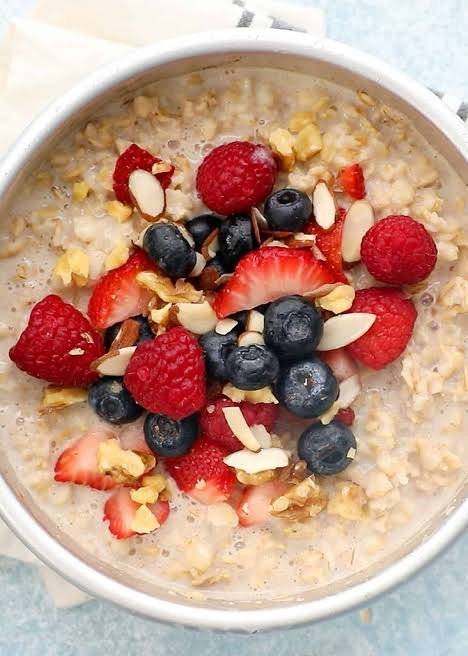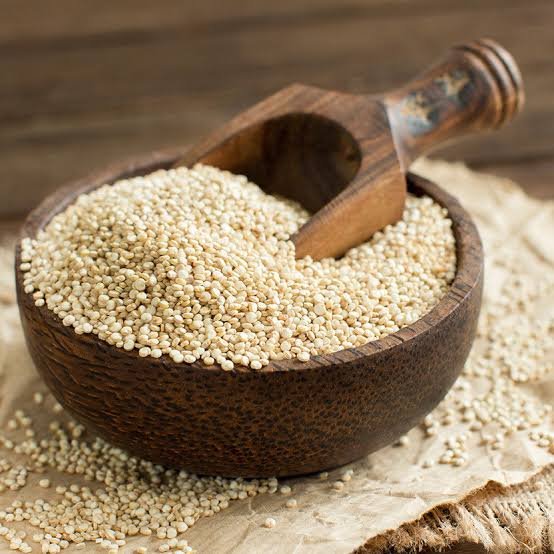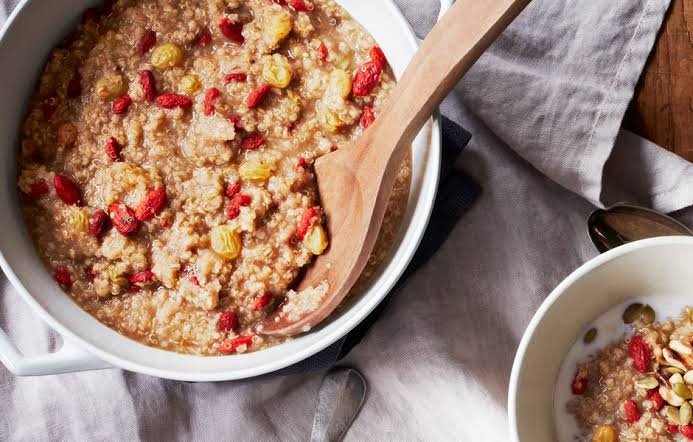Why You May Reconsider Eating Oatmeal And Quinoa
Heard about oatmeal and quinoa as wholegrains?
You’ve been told over and over in the media that foods like oatmeal and quinoa are good for you, and you should eat lots of them. But what most people don’t realize is that these two particular foods contain compounds that can actually harm your health and your digestion in many ways.
And as your favorite Nutritionist, I’ll explain why in this quick email, so you can avoid further harming your health and digestion with these so-called “healthy” foods.
1. Oatmeal and Oat Milk

While oatmeal is touted as a healthy carb and a source of fiber, unfortunately there are more cons than pros with this food.
The first problem with oats is that they are loaded with a compound called phytic acid (phytates) that significantly lowers your absorption of certain minerals and vitamins, such as calcium, magnesium, and zinc. So whenever you eat oats, the phytic acid causes you to absorb less of these vitally important minerals which could cause health problems if you eat oats too frequently, since most people already don’t get enough minerals like magnesium and zinc.
The second problem with oats is that they contain one of the highest residue concentrations of the toxic herbicide glyphosate, which can damage your gut, and have been linked to other health problems like cancer, hormone issues, and more.
The next major problem with oats is that they are a significant source of mycotoxins in the diet, which are mold based toxins that can cause an array of gut problems, hormone problems and more.
Lastly, oats can also contain high levels of the toxic heavy metal Cadmium, which is linked to health problems as this toxic heavy metal accumulates in your body.
2. Quinoa

Quinoa is another food that is pitched as a health food or a “superfood”. Unfortunately, this is another example of a food that has more downsides than good sides.
First off, quinoa is high in compounds called saponins, that have been shown in some studies to cause gut damage and contribute to “leaky gut”.
Another problematic compound in quinoa are lectins, which are a type of antinutrient that can damage the cells of your intestines, and contribute to several gut disorders and immune system problems.
Many friends and colleagues of mine have reported feeling abdominal pain after eating quinoa, bloating, and loose stools or diarrhea, as well as triggering of autoimmune conditions such as skin conditions. I personally just see zero reason to even eat something like quinoa, as it’s not even that enjoyable anyway.
Now that we’ve talked about why we should avoid oatmeal and quinoa if we want to avoid many of these health issues, let’s look below at a unique way to HEAL your gut, get rid of gas and bloating, increase energy, and lose fat easier.
Credit: Mike Geary, Nutritional Watchdog Ezine

